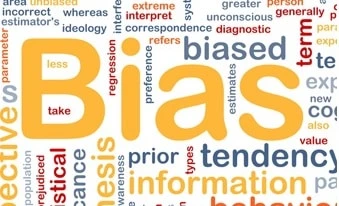
Involuntary Hiring Biases
Even in today’s cultivated society, hiring biases are everywhere. Women make up only 2.6 percent of the construction industry, says the National Women’s Law Center. This number has barely changed over the last 30 years. In addition to gender discrimination, Age discrimination is a problem in the engineering and tech industries; loaded job offers that call for “new grads” ensure this.
To make things worse, studies show that many hiring biases may be unintentional or superficially benevolent. This is no excuse, however; the legendary author C.S. Lewis put it best when he said that “tyranny exercised for the good of its victims may be the most oppressive.” From gender and ethnic discrimination to the lesser-known “affinity bias”, here are three of the most prominent involuntary hiring biases in the workplace.
People are drawn to people like themselves. It’s a fact of life. This can manifest in a ton of ways. Say, for instance, a manager who roots for Chicago sports teams finds out that his interviewee is a fan of the Bulls. “Well, that’s great,” thinks the manager. “They’ve got good taste!” The manager takes a liking to the interviewee, and will likely unconsciously form positive opinions about the candidate throughout the interview and may even aid them with trickier questions.
On the other hand, imagine the same manager interviewing a candidate with a haircut he doesn’t like. Right off the bat, the manager makes silent judgment calls that even he doesn’t notice. The interview goes poorly in the manager’s eyes; in his mind, the candidate shouldn’t have even shown up.
This is the “affinity bias”. People work with those they like, and reject those they don’t like; it’s a fact of living. In the business world, however, this is completely unacceptable. Imagine a construction company where the majority of the employees had the same experiences, lifestyle, likes and dislikes as the manager. That company will stagnate almost instantly.
The second most dangerous hiring bias is the age-old albatross known as discrimination. For instance, it’s commonly thought that men are better at math than women, and Indians are better at math than most other ethnic groups. Naturally, the best mathematicians and engineers are Indian males, right? Readers will note that this thinking is patently ridiculous. It is also, sadly, common.
Rounding out the three most prominent involuntary hiring biases is simple self-preservation. Managers naturally fear losing their jobs and thus get wary of hiring anyone who could threaten their position. A particularly competent candidate could do a great job, sure, but where would that leave the manager? So the manager decides to look for someone slightly less qualified.
To combat these biases companies have adopted practices much like the “blind auditions”. Here, the candidate interviews with a number of interviewers from behind a screen so that those hiring do not know who they are interviewing. This has resulted in more people getting accepted for roles that may have been disregarded due to an “affinity bias” This could go a long way towards solidifying diversity in the business world.
Michael DeSafey is a leading executive recruiter for professionals in the construction, engineering and environmental industries. He is currently the President of Webuild Staffing www.webuildstaffing.com . To learn more about Michael or to follow his Blog please visit www.michaeldesafey.com
